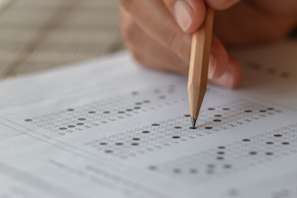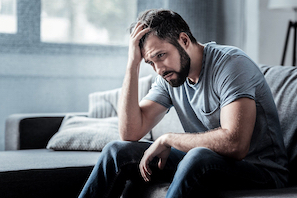As we all face this global health crisis and do our best to keep healthy and safe, it’s vital that we don’t neglect our mental health. The current situation is adding extra pressure, stress and uncertainty to everybody’s lives. Rapidly changing circumstances and constant negative headlines are enough to leave anyone frazzled. For people with existing mental health concerns, the impact can be far greater.
Below are a few simple strategies to help reduce anxiety and boost your mood in the weeks and months ahead.
Strategy 1: Stay Connected
Social connection is vital for maintaining general wellbeing, reducing the risk of anxiety, depression and psychological distress (*). Even if you can’t be in the same physical space as your friends and family, there are lots of ways to interact. With programs and apps like Skype, Zoom, Facetime and Houseparty, you can still catch up with a friend (or a bunch of friends) over dinner or a drink, just do it online. There are also lots of options for connecting with your neighbours and the wider community through local Facebook groups, virtual book clubs and even live streamed performances from artists and musicians. Just because we are physically separated, it doesn’t mean we need to feel disconnected.
Strategy 2: Limit your media intake
With the situation changing so quickly, it’s tempting to refresh our browsers for updates every few minutes. But so much information, particularly when it’s negative, fearful or confusing, can put you in a heightened state of stress and anxiety. When our minds and bodies are in this state, it’s difficult to think rationally and we’re more prone to psychological distress and panic. It is important to stay informed and up to date, but this can be done by checking a couple of credible sources once or twice a day. Choose media outlets you trust or stick with official sources, such as the ones below. And if the news is really getting you down, give yourself a few days off.
Head to Health https://headtohealth.gov.au/covid-19-support/covid-19
Australian Government Department of Health https://www.health.gov.au/news/health-alerts/novel-coronavirus-2019-ncov-health-alert
Health Direct https://www.healthdirect.gov.au/coronavirus
Strategy 3: Find Ways to Exercise
Physical activity is one of the most effective ways to reduce anxiety, improve your mood and release stress. Even if you’re in strict isolation, try and keep moving in whatever way you can. High intensity interval training (HIIT) is one of the best forms of exercise for easing the symptoms of depression and anxiety (^). There are many affordable or free mobile apps and even YouTube videos that can help you work out at home. A lot of gyms and personal trainers are offering online programs as well and some are even streaming online classes. For those who are new to exercise, less mobile or have underlying health conditions, just be sure to get your blood flowing by stretching and moving around the house throughout the day. Or go for a walk if you’re not in strict isolation.
Strategy 4: Remember, this is only temporary
Without a clear end in sight, it’s difficult to put things in perspective. But try and remember that this is temporary and the world will soon be moving again. The world’s leading scientists, health professionals and public health experts are working hard to reduce the impact of this pandemic and develop new treatments and vaccines for COVID-19. This is a difficult time but it won’t last.
Strategy 5: Get some me-time
If you live with family or in a small space with housemates, it might be hard to find time to unwind and relax. If you’re in desperate need of some downtime but you don’t have a room to yourself, take a long bath, go for a walk (if you’re not self-isolating) or put on some noise-cancelling headphones and listen to your favourite podcast. You might need to ask your household not to bother you until you say so. At times like this, we all need to be extra respectful of each other’s boundaries and needs. Or get motivated to start something new like an online business.
Strategy 6: Seek professional support if you need it
These are strange and unnerving times and it’s normal to feel unsettled. All of us will react differently to the changing circumstances but if you’re extra stressed or feeling overwhelmed, struggling to sleep, experiencing consistent anxiety or low mood, it might be a good idea to speak with a professional. We offer sessions with professional counsellors and psychologists via online platforms like Skype and Zoom and over the phone if face-to-face is not possible.
Want to speak with a mental professional? Don’t hesitate to get in touch via our online form or call (02) 8205 0566 to book an appointment.
* Williams, K. L., & Galliher, R. V. (2006). Predicting depression and self-esteem from social connectedness, support, and competence. Journal of Social and Clinical Psychology, 25(8), 855 874.doi:http://dx.doi.org.ezproxy.une.edu.au/10.1521/jscp.2006.25.8.855
^ Heggelund, J., Kleppe, K. D., Morken, G., & Vedul-Kjelsås, E. (2014). High aerobic intensity training and psychological states in patients with depression or schizophrenia. Frontiers in psychiatry, 5, 148. https://www.frontiersin.org/articles/10.3389/fpsyt.2014.00148/full






















